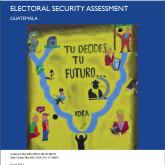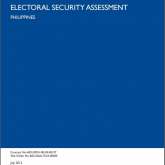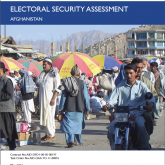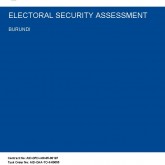Patrick W. Quirk (Washington, DC)
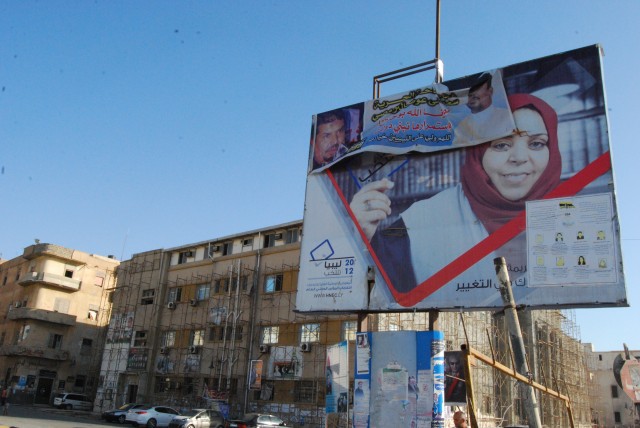
Creative’s Conflict Management and Electoral Security Team Gleans Insights from Across the Globe Relevant to Upcoming Polls
Over the last year in what has been termed the “Arab Spring,” the collapse of long-standing regimes in countries such as Tunisia, Egypt and Libya has created space for political contestation that citizens in these countries had never before experienced.
Having demonstrated their strength through actions on the street, citizens shifted to establishing institutions of government that reflect the popular will and cultural contours of their polities. Through concerted action and collaboration within and across state- and non-state sectors, much has been achieved.
The people of Egypt and Libya determined that elections were to be their chosen instrument for determining governance and, for the first time in decades, participated in largely open and fair elections. Individuals and political parties alike campaigned for votes.
The citizens of the Arab Spring look to electoral processes as crucial to legitimizing government, promoting accountability and good governance, as well as contributing to national stability. While elections can serve these needs if administered impartially and in a peaceful environment, they can also de-stabilize nations and de-legitimize governments if mired in conflict and violence.
What is more, the potential for violence can keep citizens away from the polls and deter candidates from openly campaigning. Recent events in Libya and other countries evidence that, despite forward progress and remarkable gains across the Arab world, these processes and ongoing transitions remain fragile. This has particular implications for other countries in the MENA region slated to hold elections in the coming months—should upcoming polls experience conflict and violence, transitions risk being de-railed and the legitimacy of governments questioned.
Recognizing the threat that violence poses to the integrity of elections, over the past year Creative has been working with state- and non-state stakeholders across the globe to develop strategies to prevent, manage, and mediate election-related conflict and violence. Through a program funded by USAID, Creative’s Jeff Fischer and Patrick Quirk performed electoral security assessments in Afghanistan, Burundi, Guatemala, and the Philippines to help state- and non-state actors in these locations manage potential conflict surrounding upcoming polls PFDs of the assessment reports can be found here: Creative – Electoral Security Assessment PHILIPPINES Creative – Electoral Security Assessment GUATEMALA Creative – Electoral Security Assessment AFGHANISTAN and Creative – Electoral Security Assessment BURUNDI.
Building on findings from these assessments and extensive interviews with experts across the globe, Creative is writing a Best Practices Guide in Conflict Management and Electoral Security. Insights from this Guide [to be published by USAID in November] will prove useful to state- and non-state actors in Arab spring countries as they plan for upcoming elections. Though organizing elections is vital to forward progress in these nations, actors must also ensure that these processes are secure so that citizens have the opportunity to make their opinion heard.
Patrick W. Quirk, Management Associate, Conflict Management and Electoral Security, Creative Associates International
